This is why COVID Makes Remote Asset Management Essential
Virtual offices, rent deferrals, building closures. As coronavirus sweeps the globe, property managers face new daily challenges in a rapidly evolving economy and remote work requirements. Companies that haven’t already moved to remote asset management are experiencing significant disruption and inefficiency.
How long this “new normal” will last is anyone’s guess. In response to COVID-19, local and federal governments remain fluid in rolling out relief and stimulus programs for small-to-medium size businesses. The Government of Canada introduced the Canada Emergency Commercial Rent Assistance (CECRA), which will lower rent by 75 percent for small businesses. In addition, the Business Credit Availability Program (BCAP) supports financing for Canadian companies in all sectors and regions. Comparatively, through the CARES Act, the U.S. Federal Government will send a one-time stimulus check to many Americans and make low-interest loans available to small businesses.
One thing remains clear – the pandemic has changed how we do business. Companies must understand their limitations and then act on that knowledge wisely and aggressively if they are to survive. Is your company positioned to survive? Is it possible to actually come out stronger on the other side of this current crisis?
Work-from-home technology, and empathy, enable you to care for your properties, staff and tenants safely and effectively. Here’s a look into how now moving to remote asset management can future-proof your property management business.
Take a page from history
Pivoting a business model in times of crisis is not new. It has long been an integral part of business innovation. Historically, during recessions and downturns, companies survive and outperform competitors when they invest in new growth areas and improve efficiency.
While it may be true that industry experts had forecast some turbulence in the markets, none of us saw COVID-19 coming. Then again, market disruption – while uncomfortable and anxiety-producing – generally creates opportunity.
Already we have witnessed companies quickly pivot to support immediate needs. Gap, Nike, Zara, Brooks Brothers and smaller manufacturers are using their factories to make masks, gowns and scrubs. On a smaller scale, some businesses have introduced new services and technologies to expand market reach.
Property managers, too, must pivot in real-time to deal with a rapidly evolving crisis. Businesses must ramp up with current technology to compete efficiently and support work-from-home staff and stakeholders. Now is the time to think fiercely about every resource available. Ad hoc responses won’t be enough. Property managers must implement new remote asset management tools and lay the groundwork for their recoveries now. How you restructure your business model will be crucial in optimizing solutions to problems that seem impossible to solve.
Why risk-averse leadership is reckless in a pandemic
Pivots generally bring significant risks, but strong leadership recognizes that the potential benefits outweigh the risks. Strong leaders see that paralysis in the face of danger can result in the most devastation. Indeed, it requires a unique type of leader to take risks during an economic crisis. The coronavirus pandemic is plunging the global economy into its deepest slump since the Great Depression.
When the situation is uncertain, human instinct can cause leaders to avoid action until the threat becomes clearer. But according to The New York Times, this means failing the “coronavirus leadership test.” Passing the test requires leaders to act in an urgent, transparent and consistent manner. All the while understanding that mistakes are inevitable and course correction is the best path to survival.
But where to begin?
You’re probably wondering which fire to put out first. This is an unprecedented time for a commercial property owner. From rent deferrals, to being unable to complete service requests due to shutdowns, to implementing new technologies – property managers have a great deal of stress on their hands.
However, the lack of strategic action only exacerbates disorientation. To start, carve out time to reflect on mistakes and take a long view at where you want to be post-pandemic. How prepared was your business to work remotely? Are there systems that could have increased efficiencies and productivity? How will your stakeholders see your business when this crisis is over?
Digital property asset and lease management is no longer a luxury
The stakes for digital transformation are higher than ever before. Property managers are being forced to consider contactless systems. Virtual business systems have become the most logical choice and, more importantly, the safest choice.
Property owners already leveraging integrated systems are far better equipped to respond to the rapidly changing market. Unfortunately, those still living in the digital dark ages will be left behind. Let’s take a deeper look at how property management software can increase efficiency in times of crisis.
Remote asset management and document sharing
At this point, the pandemic lockdown has likely exposed the shortcomings of entry-level software – or even worse manual workflows. Handwritten invoices and property details in filing cabinets make document sharing difficult on a good day, let alone amidst a global war against infectious disease.
Landlords face the challenge of responding to uncertain owners, accountants, realtors and tenants quickly, safely and accurately. All the while, they are juggling the collapse of customer demand, significant regulatory changes, supply chain interruptions, unemployment and economic recession. Fragmented, inaccessible data management is just another critical problem to solve.
With revenue dropping and budgets getting tighter, fewer people must do the same work as before. The new reality is, working from home now must be more efficient than working in the office was previously.
Online business systems give you instant access and control over your data. Centralized data storage is critical for tracking and moving information while providing a holistic view of records and the transition of people and properties. It is the only way to efficiently access information at all levels and in all areas – without the worry of passing paperwork by hand. CRESSblue significantly increases efficiency and supports remote working. It enables your company to be more productive than ever.
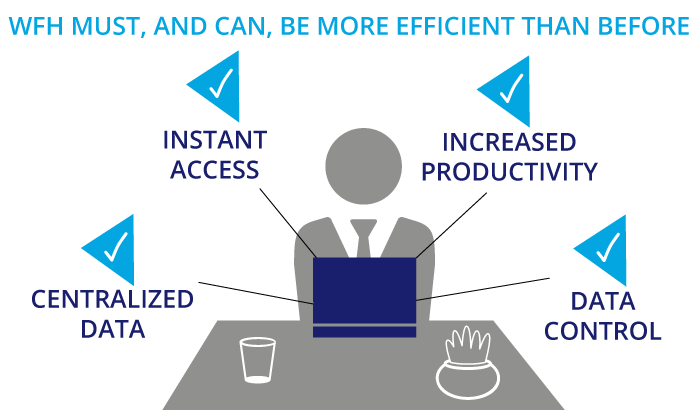
With CRESSblue, your team can seamlessly work from home or the office as needed. To illustration, one at-home worker can enter an invoice while another can review and approve it for payment – all without being in the same building. The right technology is now a lifeline for businesses.
Keep digital security concerns at bay
The pandemic has made it harder for companies to maintain security and business continuity. With work-from-home orders at an unprecedented scale, executives must prioritize initiatives to safeguard sensitive information.
Information sharing through excel and email only increase the risk of security leaks and human error. Cloud-based solutions can make it easier for staff to work remotely because they can be implemented faster than on-site systems. Also, software systems with configurable user restrictions will allow you to control both viewing and editing permissions. CRESSblue is a cloud-based software with role-based permissions for each user type. It enables you to distribute documents and be confident knowing your data is safely centralized and backed up.
Now is the time to automate complex calculations
Economists warn that it may take years to recover from the COVID-19 lockdown financially. Therefore, executives must maintain strict discipline in monitoring cash-flow with special attention given to capturing and collecting receivables.
There are emerging government exemptions and refunds available for companies aiding in the prevention and treatment of the epidemic. For example, in compliance with infectious disease control, multi-unit building owners may be required to invest in changing building security systems from a keypad to a touchless key fob system. If contributions to these types of leasehold improvements are rolled into the rents, the capital expenses should be clearly identified in new/renewed lease negotiations and in calculations to avoid paying income tax on money that isn’t really revenue. We covered more about leasehold improvements in a previous article.
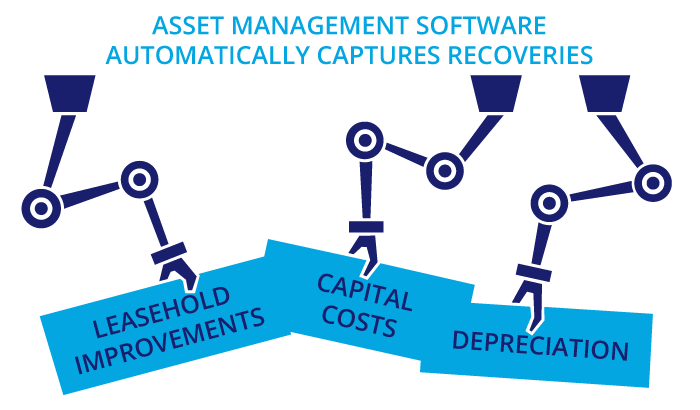
With the right asset management software capturing recoveries can be easy. Capital costs can be automatically classified and added to the building capitalization. Along with the appropriate depreciation values for annual tax returns and financial statements.
Let property management software do the math
While the coronavirus lockdown holds grip, landlords can expect to see more vacancies, tenant changes and rent exemptions. Multi-tenant property owners must prepare now for increased complexities when it comes time to calculate the proportionate share of CAM expenses.
Let’s consider a scenario in which a first-floor tenant in a multi-tenant office building institutes work-from-home orders, leaving their space vacant. In this hypothetical example, tenants on the second floor remain operational. Naturally, vacant spaces will have lower water and heating/cooling costs. Expenses are allocated to those tenants based on proportional areas, but now the usage varies widely for the period covered by the invoice. Work from home policies are creating vacancy-like conditions for calculating fair and accurate expense allocations. Imagine trying to track and reconcile intricate expenses and invoices on spreadsheets? Not a very efficient use of time.
Commercial software, such as CRESSblue, can automatically calculate the proportionate share for each tenant including occupancy/vacancy expense gross-ups and provide an audit trail for each invoice. This one-stop-solution will increase efficiency in your business and ensure nothing is overlooked. Perform complex calculations with automated actions that do the work for you – quickly and accurately.
Customers will remember how you react during the crisis
The best way for property managers to protect their revenue is to provide superior customer service, despite catastrophic circumstances. As we learned earlier, coronavirus leadership requires one to behave in an urgent, transparent and consistent fashion.
Consequently, it might be time to step-up your accounting game. Scrambling to gather invoices and lease agreements and amendments will only delay delivery, increase stress and leave room for error. An automated accounting system, like CRESSblue will increase reporting speed and accuracy for anxious stakeholders. What’s more, its internal audit capabilities can prove that accounting documents comply with the lease documents terms. In turn, the company can be confidently transparent in its dealings with tenants and prompt with auditors.
Plan for recovery now, not later
The COVID-19 crisis was impossible to exactly predict. But all crises contain the seeds of opportunity. The question is not if we can avoid uncertainty and crisis. That has already happened. Seeing that that disruption has already been forced upon us, what positive changes will we apply that driving force to?
Leaders must take action during a crisis with recovery in mind. Think broadly about where you see your property management business once the dust settles. More importantly, how do you want your investors and customers to see your business?
There is some speculation that this crisis may last for a year or more and may reoccur in the future. Post-pandemic, some people may need to continue to work from home at least part-time. How will you adapt if laws are passed requiring more space between work stations, but you don’t have more space available? What if key talent requests to continue to work from home 1 or 2 days per week? How will you ensure your company is capable of expanding and contracting as needed? Companies that are flexible and agile are the ones that can thrive during change.
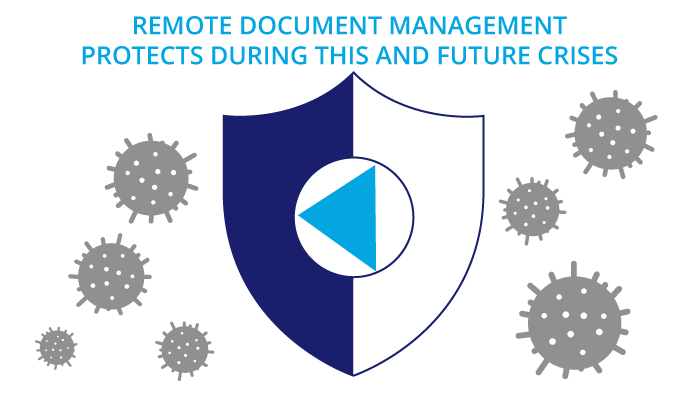
Now more than ever, there is the need for innovative ideas and solutions to tackle unprecedented problems. It’s important to remember that technology-driven change and digital disruption are here to stay. When the crisis is over, it will be clear which companies have the resilience and agility to reshape their business model to thrive in the future.
Remote asset management is here to stay
You know it. We know it. The old way is no longer good enough in this new reality. Not quickly adapting is too risky and costly. Be the company that survived, no, thrived in the pandemic. When they ask in the future, tell them, yes, we survived AND grew. Your company and leadership will be more valuable than it was before the crisis.
CRESSblue can help you streamline your productivity and bounce-back stronger than ever before. Book a demo for a guided tour through the automated, time-saving features. It only makes sense to use a system that lets you do more with less when it matters the most.
Disclaimer
This article is for informational purposes only and is not intended as professional advice; please consult a competent professional for advice specific to you. This blog is written to stimulate thinking on concepts related to commercial leasing. Please join the discussion with your experiences.

Martin Sommer, CEO, CRESS Inc.
Martin is a founder and the CEO of CRESS Inc., a Canadian SaaS company that automates lease administration and asset management. Martin also manages Karanda Properties Limited industrial portfolio as Director of Operations in all areas of commercial property management, including new development, asset management, capital expenditures, operations, leasing and lease administration of the industrial portfolio. Martin writes about property management workflow and issues. Book Martin to speak at your industry event.

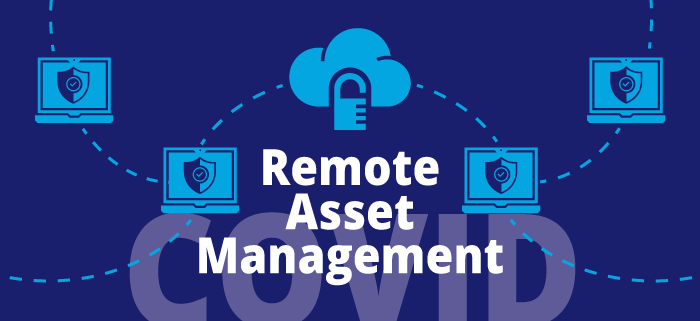
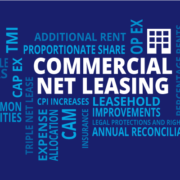
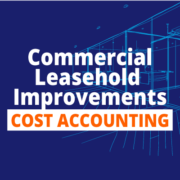
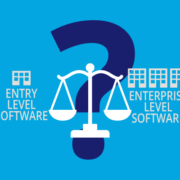

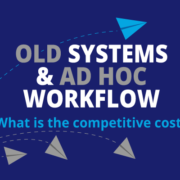



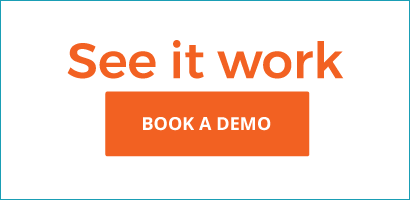
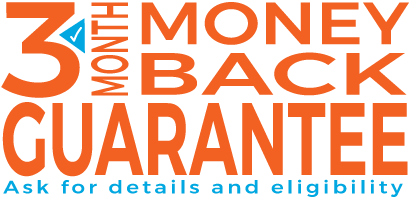


[…] some businesses are stuck in a virtual limbo. Others have embraced new technologies in the form of remote asset management or online events. Predictions made early in the pandemic about returning to normal are now […]
[…] change to meet the new requirements. The stress is already present. Moving to more capable systems will only make the stress go away sooner. Move quickly to position yourself for survival, and you may also find that you also have the […]